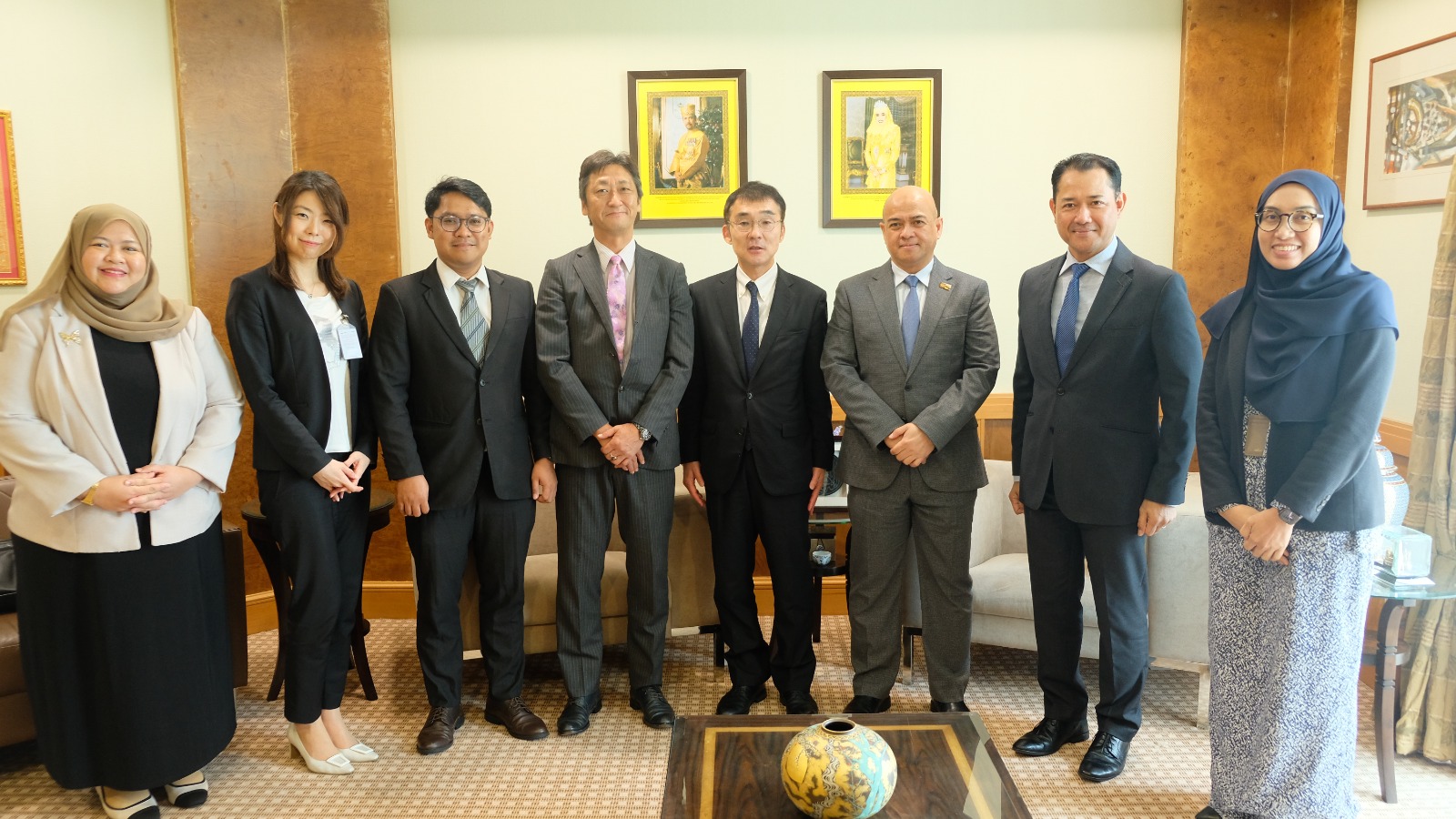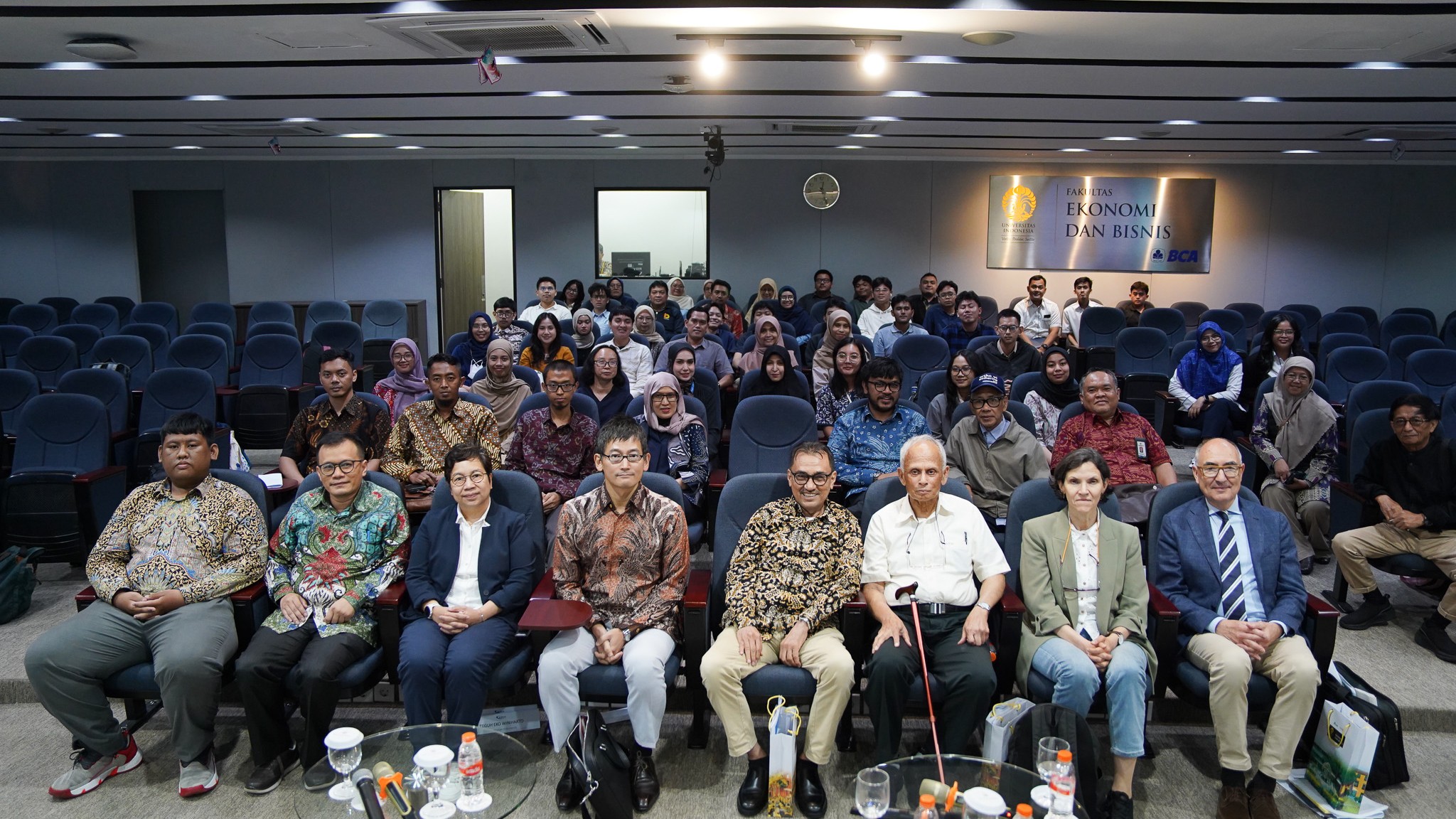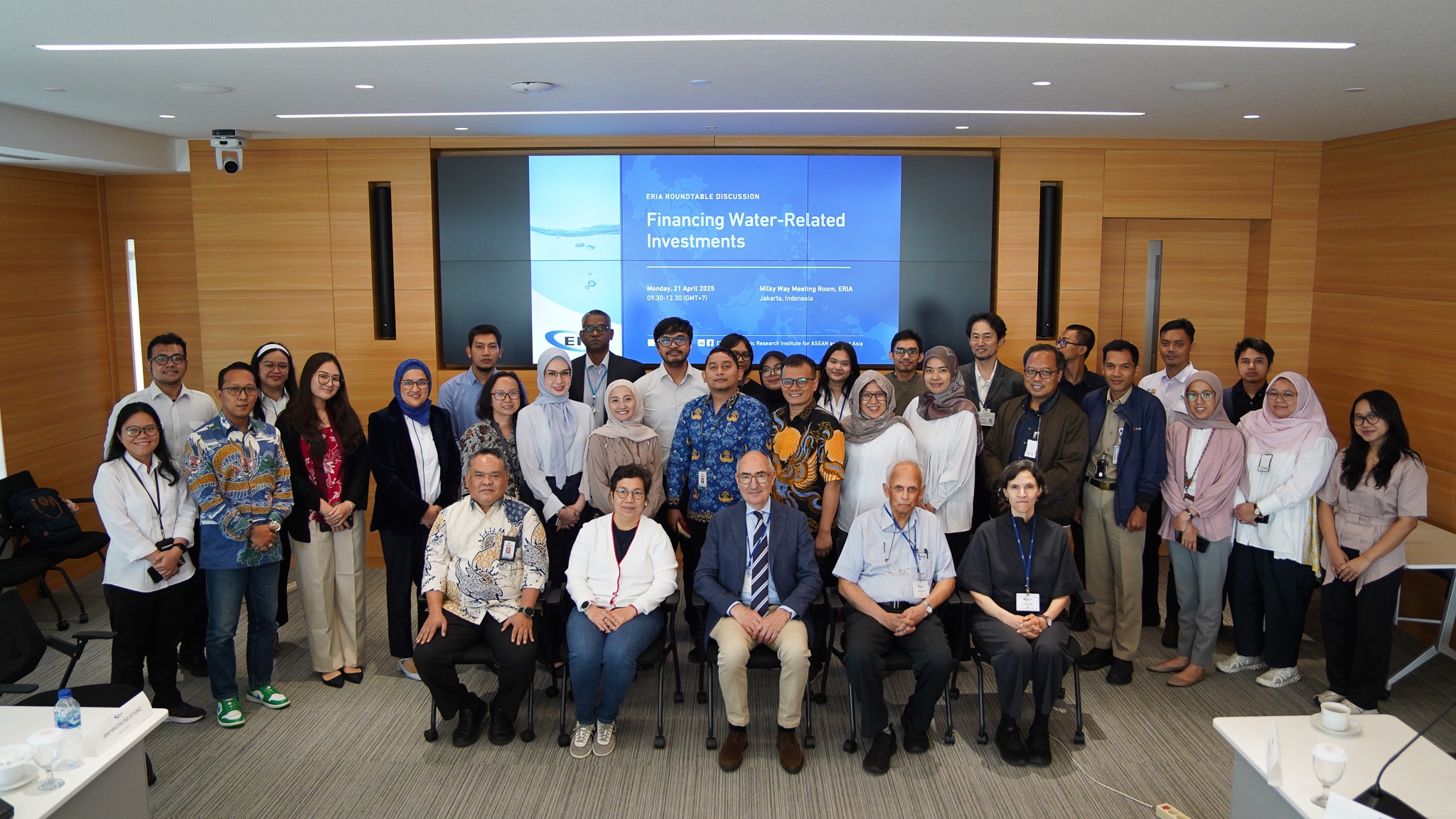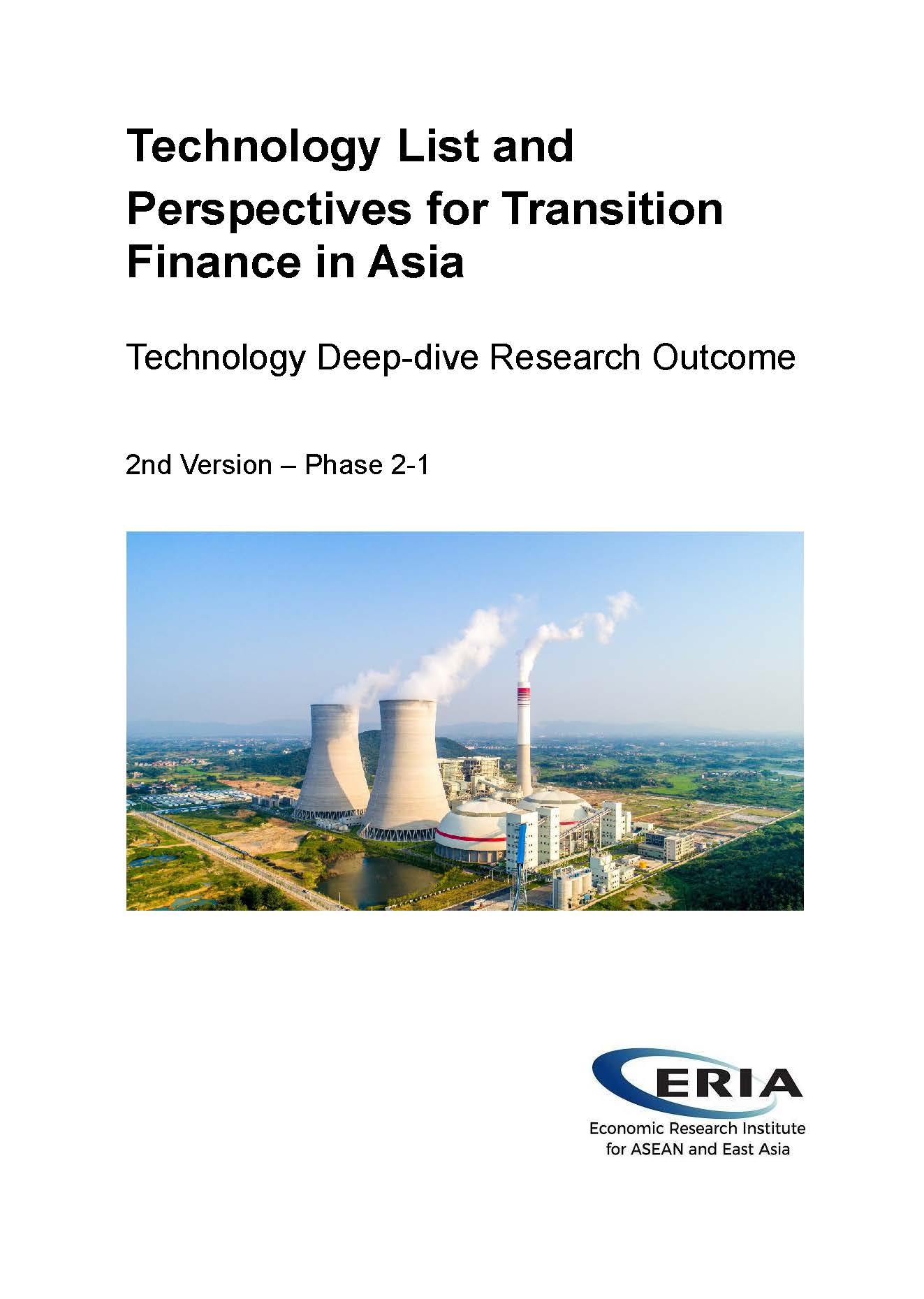Is Southeast Asia the Next Frontier for AI?
Date:
29 November 2024Category:
OpinionsTopics:
Innovation and Technology, TechnologyShare Article:
Print Article:
By Satria Mahesya Muhammad, Assistant, Research Activities: In the first half of 2024, Southeast Asia (SEA) attracted over US$30 billion in artificial intelligence (AI) infrastructure investments, according to the 2024 e-Conomy SEA Report from Google, Temasek, and Bain & Company. The ERIA One ASEAN Startup Whitepaper highlights over US$50 billion invested in AI by tech giants including Microsoft, Google, and Amazon since January 2023.
The influx of investments reflects the growing recognition of Southeast Asia’s as a burgeoning hub for AI innovation - a shift that could drive the region’s economy forward. The Association of Southeast Asian Nations (ASEAN) has projected that AI could boost the region’s gross domestic product by 10% to 18%, potentially adding US$1 trillion by 2030.
With over half of ASEAN youth already digitalising a significant portion of their tasks, the region’s tech-savvy youth presents a key advantage in accelerating AI adoption. While these developments and the region's growing interest in AI present promising opportunities, significant challenges remain. What steps must Southeast Asia take to fully harness AI’s potential and position itself as the next frontier for AI?
Policy Support and Private-Sector Push
Having acknowledged AI’s importance, some Southeast Asian governments have formulated national strategies, such as Indonesia’s National Strategy for AI and Singapore’s NAIS 2.0, to integrate the tech across various sectors. Singapore has also invested US$70 million to develop language models that are tailored to regional cultures, among other efforts.
At the regional level, ASEAN has launched initiatives such as the ASEAN Guideline on AI Governance and Ethics and the establishment of the ASEAN Working Group on AI (WG-AI) to promote collaborative efforts and ethical AI use across its member states. Furthermore, the Digital Economy Framework Agreement (DEFA), which is in the works, is also expected to help synergise cross-border data regulations in the region, potentially leading to more reliable and accurate AI systems.
Beyond government initiatives, the private sector has been driving AI adoption, with the 2024 e-Conomy SEA report noting that 54% of generative AI projects advance from ideation to production within six months, and 71% yield Return on Investment (ROI) within 12 months. With an impressive short turnaround, regional tech majors such as Gojek, Grab, and Lazada leverage AI in their business operations. From demand prediction to personalised recommendations, AI is enhancing their business operations and profitability.
Obstacles to Overcome
Despite the strong AI investment and adoption in SEA, significant challenges remain. The ERIA One ASEAN Startup Whitepaper and the 2024 e-Conomy SEA Report highlight digital talent scarcity as a key challenge, as 61% of ASEAN youth aged 10 to 24 years old were not taught formal digital education in school. This further exacerbates the digital divide and limits regional competitiveness in attracting AI investment. Furthermore, differing scores in AI preparedness amongst SEA countries - with only Singapore, Malaysia, and Thailand scoring above the Asia-Pacific average - creates barriers for cross-border growth and leads to regulatory inconsistencies, particularly in data governance and cybersecurity.
While AI offers immense benefits, it also presents challenges that could threaten the region’s energy transition and sustainability goals. For instance, the surge of data centre investments, fuelled by AI development, could strain the region’s resources and undermine efforts to reduce energy intensity by 32% by 2025.
To truly capitalise on the transformative power of AI and establish Southeast Asia as the next frontier in the field of AI, a unified and strategic approach is essential.
- Fostering Talent Growth in Southeast Asia through Education, Collaboration, and Partnerships
Addressing talent scarcity in Southeast Asia requires a sustained, long-term commitment to educational investment and collaboration between Southeast Asian nations and the private sector. Increasing education funding is crucial, as ASEAN countries - aside from Singapore - lag in both the latest PISA rankings and the availability of leading global universities that cater towards AI training, research, and industry-academia collaboration, all of which are vital for developing a more inclusive and competitive AI ecosystem. Additionally, expanding vocational programmes in IT is necessary to bolster practical skills in the field and meet the demands of the digital economy. Regional cooperation should also prioritise talent mobility and retention strategies, including initiatives such as digital nomad visas, to attract global talent and promote knowledge exchange. Public-private partnerships for reskilling and upskilling must be expanded, drawing inspiration from successful examples such as SEA Bridge’s and Amazon Web Services’ initiatives mentioned at the ERIA ASEAN Startup Roundtable. Furthermore, upcoming programmes such as AI-Ready ASEAN, spearheaded by the ASEAN Foundation in partnership with Google, should receive strong support to enhance AI skills throughout the region.
- Advancing the Digital Infrastructure through Sustainable and Safe Data Management
With ongoing significant investments in data centre development across Southeast Asia, fostering robust data-driven ecosystems is essential. As highlighted in ERIA’s discussion paper on AI, this requires investing strategically in cybersecurity infrastructure, raising data awareness, and promoting intra-regional data sharing. These measures are crucial to ensuring the safety and integrity of data, which underpins AI advancements, while also promoting safe data practices amongst Southeast Asian countries. Furthermore, data centres should implement sustainable data centre practices, as outlined in the ASEAN-Huawei white paper, to reduce their environmental footprint and support energy-efficient operations, aligning with ASEAN’s sustainable energy goals while still meeting the demand of the growing digital economy.
- Strengthening Southeast Asia’s AI Ecosystem through ASEAN-led Initiatives
ASEAN has played a pivotal role in coordinating efforts to create a more inclusive AI ecosystem for its member states and should continue to champion this mission to ensure equitable AI development. As mentioned previously, the launch of the ASEAN Guide on AI Governance and Ethics and the establishment of the ASEAN WG-AI provide a foundational ethical framework to harmonise AI policies for its member states. ASEAN should also further advocate for more collaborative investments in infrastructure, data governance, and public engagement to equip the workforce with essential AI skills, as highlighted during the ASEAN Ministerial Meeting on Science, Technology, and Innovation on 7 June 2024. Ongoing partnerships with regional allies, such as China, Japan, South Korea, the United States, and the European Union, can provide expertise, capacity-building and talent development opportunities, and avenues to tackle shared challenges.
In conclusion, Southeast Asia stands at a critical juncture in its digital transformation journey, with AI emerging as a powerful engine for the region’s digital economy growth. While the rising adoption of AI presents vast opportunities and investments across sectors, addressing the critical challenges will be essential to sustain this momentum.
Southeast Asia can unlock AI’s full potential with a unified strategic approach and a commitment to responsible innovation. By investing in proper digital infrastructure, nurturing local talent, and harmonising AI policy initiatives through ASEAN-led efforts, the region can create a resilient, inclusive, and ethically grounded AI ecosystem. With this approach, the region can solidify its position as the next frontier in the field of AI, driving sustainable development and improving the lives of millions.
This opinion piece was written by By Satria Mahesya Muhammad, Assistant, Research Activities, ERIA, and has been published in The Manila Times, Bangkok Post, and The Jakarta Post. Click here to subscribe to the monthly newsletter.
Disclaimer: The views expressed are purely those of the authors and may not in any circumstances be regarded as stating an official position of the Economic Research Institute for ASEAN and East Asia.








